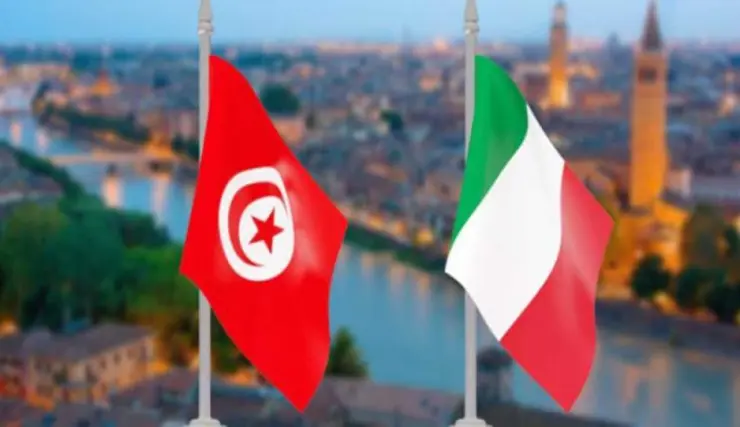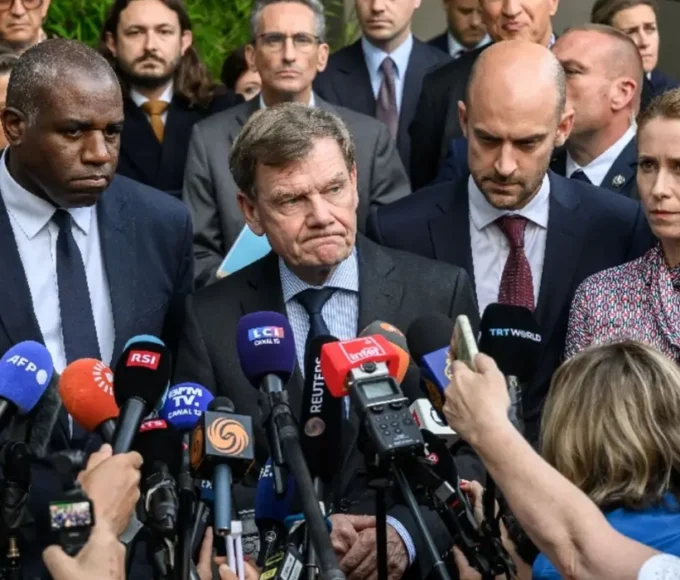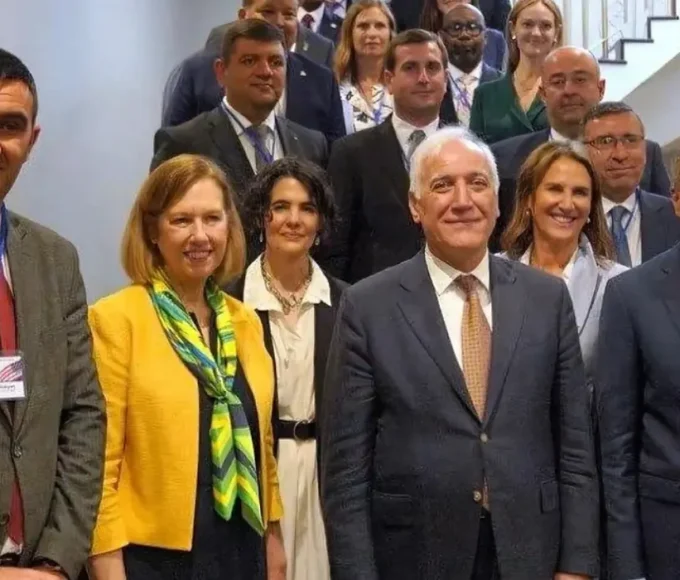For several months, Italy has been engaged in international advocacy to help Tunisia financially, particularly with donors and global financial institutions, the International Monetary Fund and the European Union as well. This neighboring country warned of a possible non-payment by Tunisia, if its partners do not come to its aid. Today, with the signing of a comprehensive and strategic partnership agreement between Tunis and Brussels, Rome continues to express its positions, in particular through its head of diplomacy Antonio Tajani.
While the financial situation in Tunisia has not improved and remains dependent on the State’s still precarious budgetary balances, Italy is continuing its mission as a messenger to Western countries, with the aim of further supporting Tunisia, being given that the agreement with the IMF is slipping.
Speaking recently in the columns of the newspaper “Corriere della Sera”, the Italian Minister of Foreign Affairs, Antonio Tajani, once again mentioned the situation in Tunisia. Asked about the fact that migratory flows from Tunisia are only increasing, Tajani believes that our country is “doing what it can to deal with it”. According to this senior Italian official, it is difficult for Tunisia to intervene to stop these flows as long as the financial and logistical means are lacking. Thus, and with regard to the Tunisian-Libyan land and maritime borders, “the first problem comes from Libya from where boats of human trafficking networks leave to dock in Sfax and embark migrants”, he explains. -he.
According to the minister, the memorandum of understanding signed between Tunisia and Europe will make it possible to release funds intended to increase Tunisia’s capacities in the fight against irregular migration. “Thanks to these funds, we can provide it with patrol boats and we can provide it with maritime guard and police units to train its military and law enforcement in control operations,” he insisted. .
It is important to remember that Italy has multiplied its efforts to defend Tunisia in this difficult economic situation. While President Kaïs Saïed reiterated Tunisia’s firm position refusing to play the role of “gendarme” protecting European borders, and while Tunisian diplomacy was facing numerous Western pressures, some bordering on interference, the Italy continued to support Tunisia’s efforts.
What does Italy want?
But what does Italy really want by deploying all these efforts to help Tunisia in a situation of economic crisis? Is the issue only migratory and security? Does this G7 country, one of the first investors in Tunisia, have interests in Tunisia other than securing its own maritime borders?
Reached by La Presse, former diplomat Abdallah Laâbidi is categorical to this effect. According to him, Italy is only defending its interests, warning against forms of interference in the internal affairs of the country. “The answer is very simple, Italy is active, because it is directly concerned by what is happening in Tunisia. Unfortunately, before, we had a fairly strong diplomatic network, this is no longer the case today, because our country is absent on the international diplomatic scene. Italy itself specifies that the memorandum of understanding signed between Tunisia and Europe does not bind any country, and is activated on the basis of geopolitical interests intimately linked to the migratory crisis, “said-t- he, adding that Tunisia did not know how to take advantage of this situation. “We have not been able to introduce this crisis as an end of the equation in this geopolitical balance of power, because we are working in a fragmented way and not according to a system or a structured diplomatic concept”, he regretted. .
Another story from the international relations expert and former United Nations official, Taoufik Ouanes. According to him, the Italian efforts and this rapprochement between Tunis and Rome are explained by a convergence of the interests of the two countries. “Neither Italy nor Tunisia can resolve the migration crisis unilaterally. There is a convergence of interests. First, if Italy defends this cause, it is not for the good eyes of Tunisians, but it has an interest in seeing these migratory flows decrease. Opposite, Tunisia also has an interest in fewer migrants in Tunisia, because the country is in the grip of great economic difficulties. Tunisia also fears for its reputation. Following the latest campaign orchestrated against the country and the image conveyed by the Western media, Tunisia wants to deny it and find solutions that are both economic and human, so there is a conjunction between the human aspect and the economic aspect which associates the interests of both countries,” he said.
And to add that cooperation between the two countries is a necessity, even a fatality. “Italy had a political duty to convince the European Union, by defending Tunisia, a close country which has difficulties and whose position and interests cannot be ignored”, this is what Italy continues to hammer .
Why have other actors and strategic partners not done so? Our interlocutor explains that international relations testify to the interests of each other. Each party selfishly defends its own. “In this issue, Italy is directly exposed. Neither France, nor Germany, nor the European Union, let alone the United States, are concerned as much as Italy. For them, the aspect of urgency does not exist”, explains Taoufik Ouanes, adding that he perceives, however, a positive tremor in the European position towards Tunisia.
Tunisia, what position?
In this complex geopolitical and diplomatic chessboard, what position should Tunisia adopt to preserve its interests? Taoufik Ouanes believes that Tunisia must strictly defend its interests, while avoiding certain behaviors that can be counterproductive. “We must try to undermine this image of a racist country which has been intentionally fabricated, including by a part of the Tunisian opposition who cares little about the disastrous repercussions on the country”, he concludes.
Asked about the possibility of directing Tunisian diplomacy towards the Brics, the former diplomat, Abdallah Laâbidi, evokes a lack of diplomatic tools: “Tunisia can adopt the diplomatic policy it wants, but it lacks diplomatic tools. It should be remembered that Tunisia has not yet appointed ambassadors to countries like China or Germany. We can adopt any diplomatic policy, but we must strengthen our tools and means before doing so”.
This article is originally published on lapresse.tn









